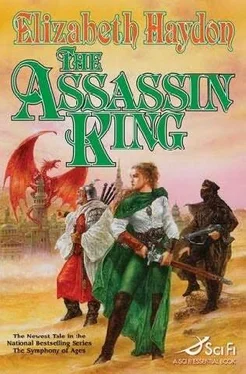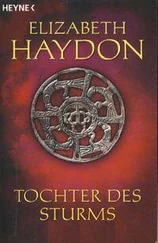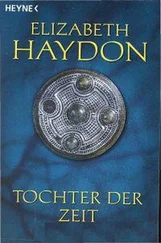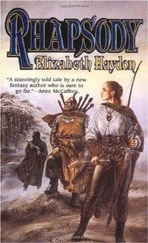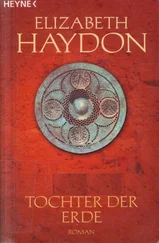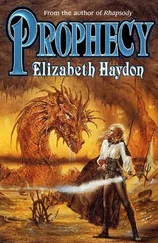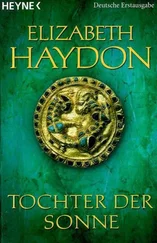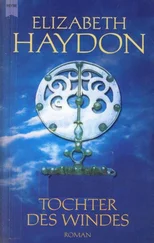Elizabeth Haydon - The Assassin King
Здесь есть возможность читать онлайн «Elizabeth Haydon - The Assassin King» весь текст электронной книги совершенно бесплатно (целиком полную версию без сокращений). В некоторых случаях можно слушать аудио, скачать через торрент в формате fb2 и присутствует краткое содержание. Год выпуска: 2005, Жанр: Фэнтези, на английском языке. Описание произведения, (предисловие) а так же отзывы посетителей доступны на портале библиотеки ЛибКат.
- Название:The Assassin King
- Автор:
- Жанр:
- Год:2005
- ISBN:нет данных
- Рейтинг книги:3 / 5. Голосов: 1
-
Избранное:Добавить в избранное
- Отзывы:
-
Ваша оценка:
- 60
- 1
- 2
- 3
- 4
- 5
The Assassin King: краткое содержание, описание и аннотация
Предлагаем к чтению аннотацию, описание, краткое содержание или предисловие (зависит от того, что написал сам автор книги «The Assassin King»). Если вы не нашли необходимую информацию о книге — напишите в комментариях, мы постараемся отыскать её.
The Assassin King — читать онлайн бесплатно полную книгу (весь текст) целиком
Ниже представлен текст книги, разбитый по страницам. Система сохранения места последней прочитанной страницы, позволяет с удобством читать онлайн бесплатно книгу «The Assassin King», без необходимости каждый раз заново искать на чём Вы остановились. Поставьте закладку, и сможете в любой момент перейти на страницу, на которой закончили чтение.
Интервал:
Закладка:
He rose, turned, and strode to the inner reaches of his chamber. The commander leapt to his feet and followed him, leaving his glass on the ornately carved table, where the dregs caught the light of the waning sun in the bottom like a stain of drying blood.
22
It did not particularly surprise Fhremus to learn that the recesses of the Emperor Presumptive’s chambers held a series of vaults and tunnels; the dynasty of the Dark Earth and the dynasty of the Forbidden Mountains before them, the rulers of Sorbold for more than seven centuries, had built into Jierna Tal as many mysteries and escape routes as they had fashioned into the empire itself. He had occasionally been allowed entry into such hidden places in the time of the Empress Leitha, but had not been shown this series, in what had once been her bedchamber.
He kept his face expressionless as the layers of drapery and tapestry were pulled aside, revealing each time a thicker, more metal-bound door, each with a subsequently more complex and difficult system of locks. Whatever the regent emperor had locked away in his chambers must have been either of great value or great danger, he reasoned, something that had apparently only been shown to a select few. He was not certain whether to feel honored or threatened.
When he entered the vault behind the final door, he decided he needed to embrace both impressions. Fhremus had heard enough from his troops to recognize what it was that he was seeing; still, it took him a moment to make the connection between the tales of horror that had been told to him and what he was witnessing within the emperor’s own chambers. Talquist set his glass down on a side table, drew back a heavy velvet drape, and revealed an alcove in the corner of the room. There within, standing on its own, was an immense statue of multicolored stone, veins of purple and vermilion and green running through what looked like wet clay drying at the edges to the color of sand. It was a statue of a soldier, of primitive garb and manufacture, one of its hands roughly hewn as if a tool or weapon of some sort had been torn from its palm in the course of its curing. Its facial features and hair were similarly roughly carved, and it was crowned with an armored helm that Fhremus recognized as in the style of the ancient indigenous peoples of the continent that inhabited Sorbold in the time before written history, before the Cymrian era of the Illuminaria, when most of the accounts and chronicles of the world had begun to be written down, inscribed on great scrolls and kept in libraries.
The statue was perhaps ten feet at the apex, its arms and legs muscular and thick in the crudeness of its carving, with none of the features of human limbs save for knees and elbows. Its eyes were hollow, absent of pupils, and it stared at the ceiling, its hands at its sides.
Fhremus had had such a statue described to him, not long before, in the breathless voices of his own soldiers. They had each told hint tales of such a mammoth titan lumbering down the main thoroughfare of Jierna’sid, murder in its intent, as it waded through a throng of defending soldiers, crushing them like wheat beneath its feet. It had dashed wagons and horse carts, broken through gates and barricades, until it made its way into the palace of Jierna Tal itself.
He had come back to the palace in all due haste at the reports, hoping to find the emperor alive, believing the possibility of him to be uninjured slim. Instead, he discovered the damage to Jierna Tal to be minimal, mended in most places, including the corner of the emperor’s own chambers, and the emperor in excellent health, with no apparent injury, none the worse for wear. Upon beholding Talquist for the first time since he heard the reports, he began to wonder if they had been the product of hallucinations. Until this moment.
“That’s not, er, the statue—”
“Yes, indeed,” said Talquist smoothly. “It is, in fact, the titan of animated stone that just a sennight ago burst forth into the streets of the city, crushing soldiers and destroying everything in its path. A beautiful thing, is it not?”
“If you say so, m’lord,” said Fhremus, not knowing what else to say in response. The Emperor Presumptive chuckled. “You have to at least admire the handiwork of our enemies, Fhremus, even if you don’t appreciate their intentions. I have to admit when I saw it from the balcony I was sore distressed, not knowing what forces of nature could have come together to allow such a thing to exist. But in my time as a merchant I have seen many oddities, many strange things in many lands, and more than anything else I have seen weapons in all shapes and sizes— poisons that you would never believe to be toxic, hidden in the softest of silk, blades so unobtrusive that you would not even notice them before you bled to death, traps so ingenious that even the most vigilant of guards would not see them before plunging to his death or being crushed beneath a block of immense stone—so there is very little that surprises me anymore, Fhremus. Thank the Creator that I’m in His favor, that as His anointed one I’m under His protection. Otherwise Sorbold would be leaderless again, as we so recently were after me death of our beloved empress and the crown prince. Who knows—perhaps you would once more be at another Colloquium with the counts of the major provinces again looking to disband the empire and absorb the smaller lands into their own.”
“Indeed, m’lord,” Fhremus murmured.
“So how do you suppose this giant stone assassin came to be animated?” the emperor asked. “Really, I’ve no idea.”
“Then allow me to educate you in the lore of our enemies,” said Talquist tartly. “We are not up against mere men, Fhremus, men like ourselves who have only our wits, our brawn, and our blood to defend the land we love. We’re up against an alliance led by men of insidious power, heirs to the throne of Gwylliam and Anwyn, with the blood of the Cymrians in their veins, and the powers which that evil race possessed. These are not mere mortals, Fhremus—time seems to take no toll on them, have no dominion over them. Many of the dynasty of Gwylliam are still alive, more than a thousand years after that cursed despot set foot on our shores, in the wake of the tidal wave he brought with him, and began systematically butchering our people on the path to what would eventually become his stronghold in the mountains now called the Teeth. In addition, the Patriarch himself is in league with the Lord Cymrian. This Patriarch, so recently installed, is an apostate, following a long line of those who perverted our religion, the holy and pure worship of the Creator that our ancestors practiced, and instead call him by other unholy names, the All-God, the One-God. In the Patriarch’s hands and the hands of his benisons are all of the elemental basilicas, and the primal lore of living earth, wind, fire, water, and starlight housed there. And his ally, Gwydion of Manosse, the Lord Cymrian, is in league with Tyrian, the Bolglands, the Nain, Manosse, Gaematria, and in control of all the armies of the Middle Continent. How can one fight against such foes?”
“We are ready to do so, m’lord,” said Fhremus. “No, you are not,” replied Talquist darkly. “You underestimate our enemies, and the powers they have at their disposal. Observe.”
He stepped before the statue and raised his hand. “Awake, Faron,” he commanded. Within the sightless eyes of the statue two blue irises appeared, milky at first, then taking on an expression of threat. Fhremus stepped back involuntarily.
“Move the table,” Talquist commanded, pointing to a thick sideboard of heavily carved wood weighing as much as three men.
The statue stared at him for a moment, then at the commander menacingly. Then it stretched as if sore, flexed its arms, and walked to the sideboard, which it seized and threw across the room into the wall, where it crashed, one of its legs broken. Talquist turned to the shaken commander and smiled.
Читать дальшеИнтервал:
Закладка:
Похожие книги на «The Assassin King»
Представляем Вашему вниманию похожие книги на «The Assassin King» списком для выбора. Мы отобрали схожую по названию и смыслу литературу в надежде предоставить читателям больше вариантов отыскать новые, интересные, ещё непрочитанные произведения.
Обсуждение, отзывы о книге «The Assassin King» и просто собственные мнения читателей. Оставьте ваши комментарии, напишите, что Вы думаете о произведении, его смысле или главных героях. Укажите что конкретно понравилось, а что нет, и почему Вы так считаете.
